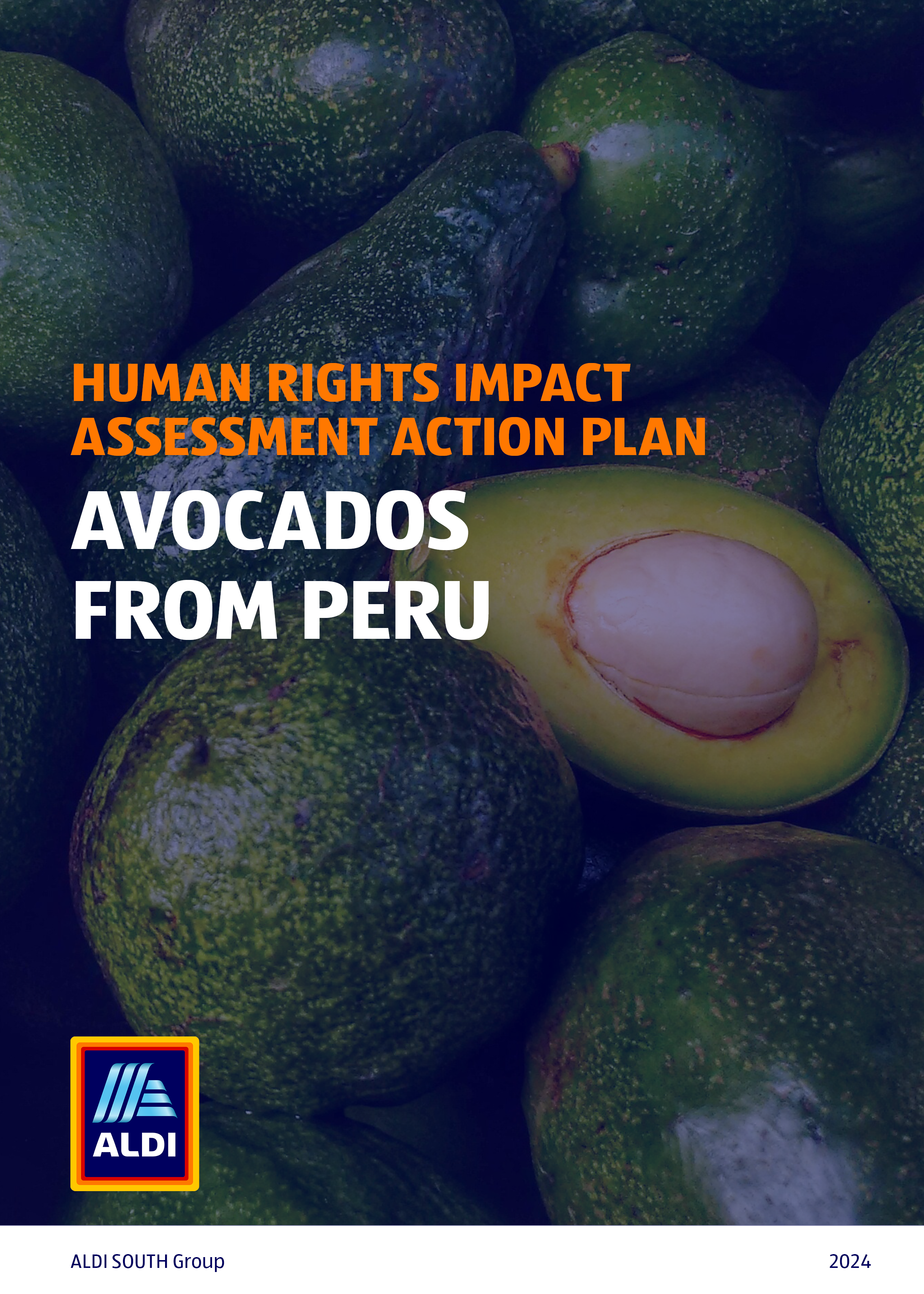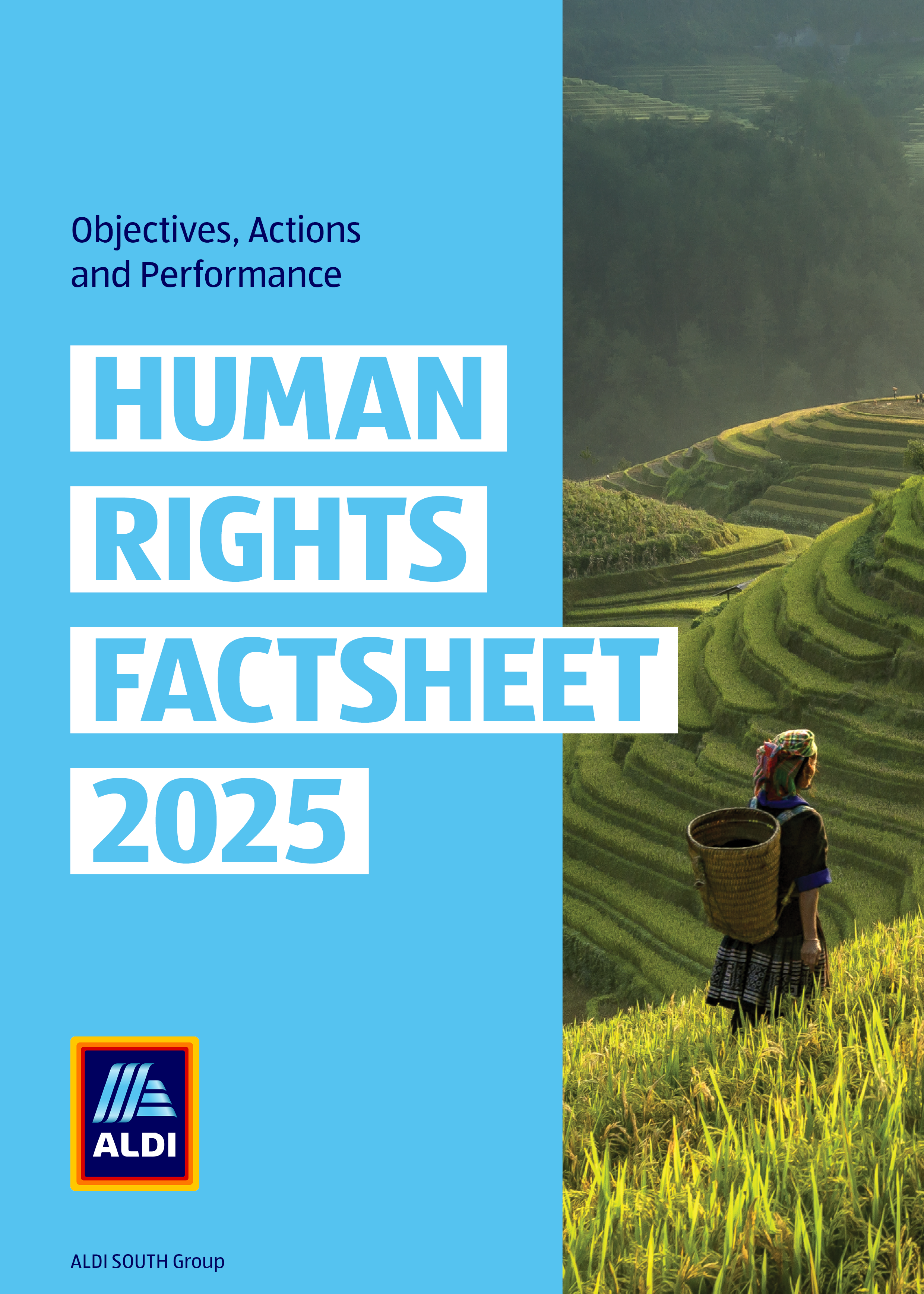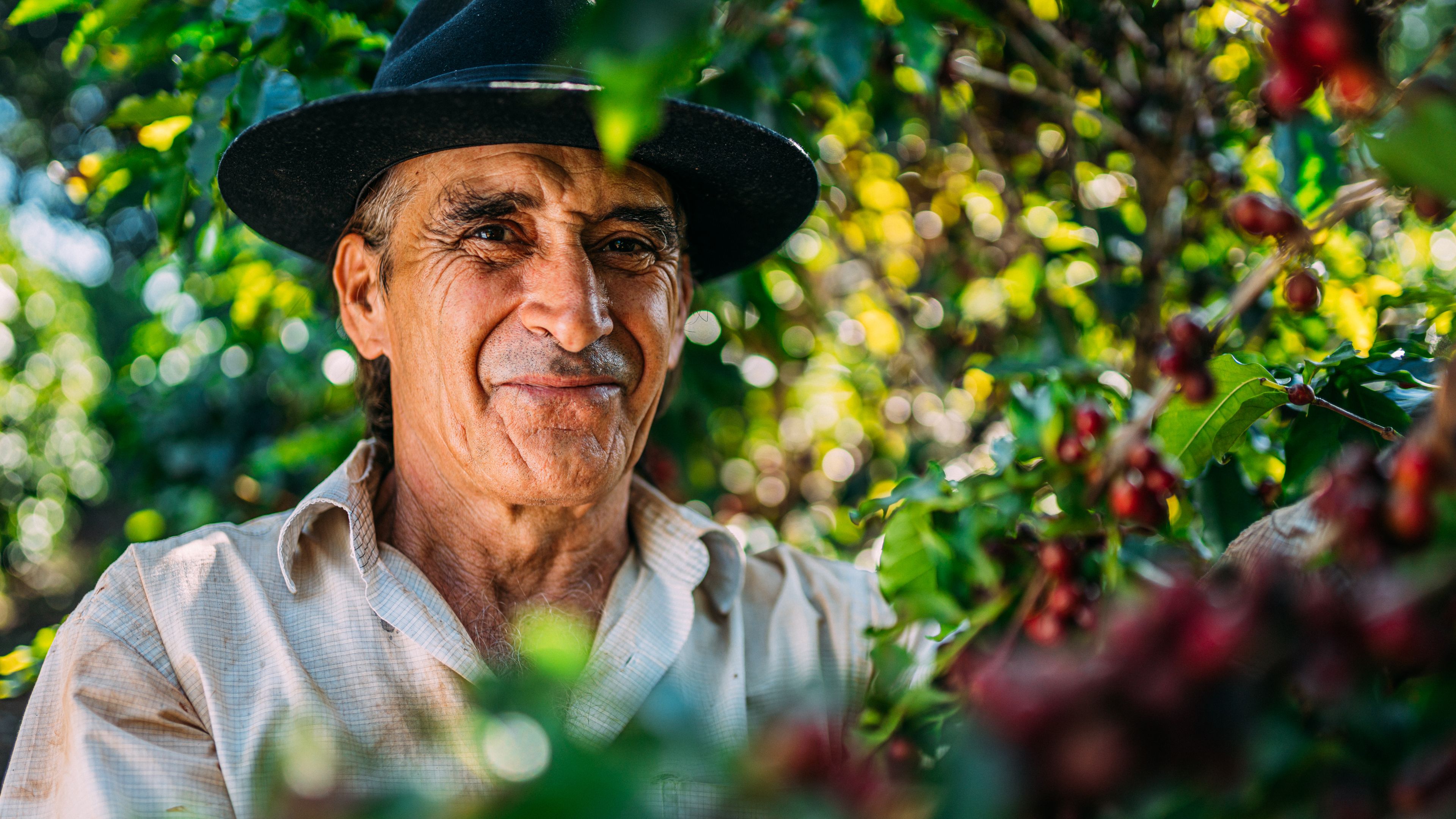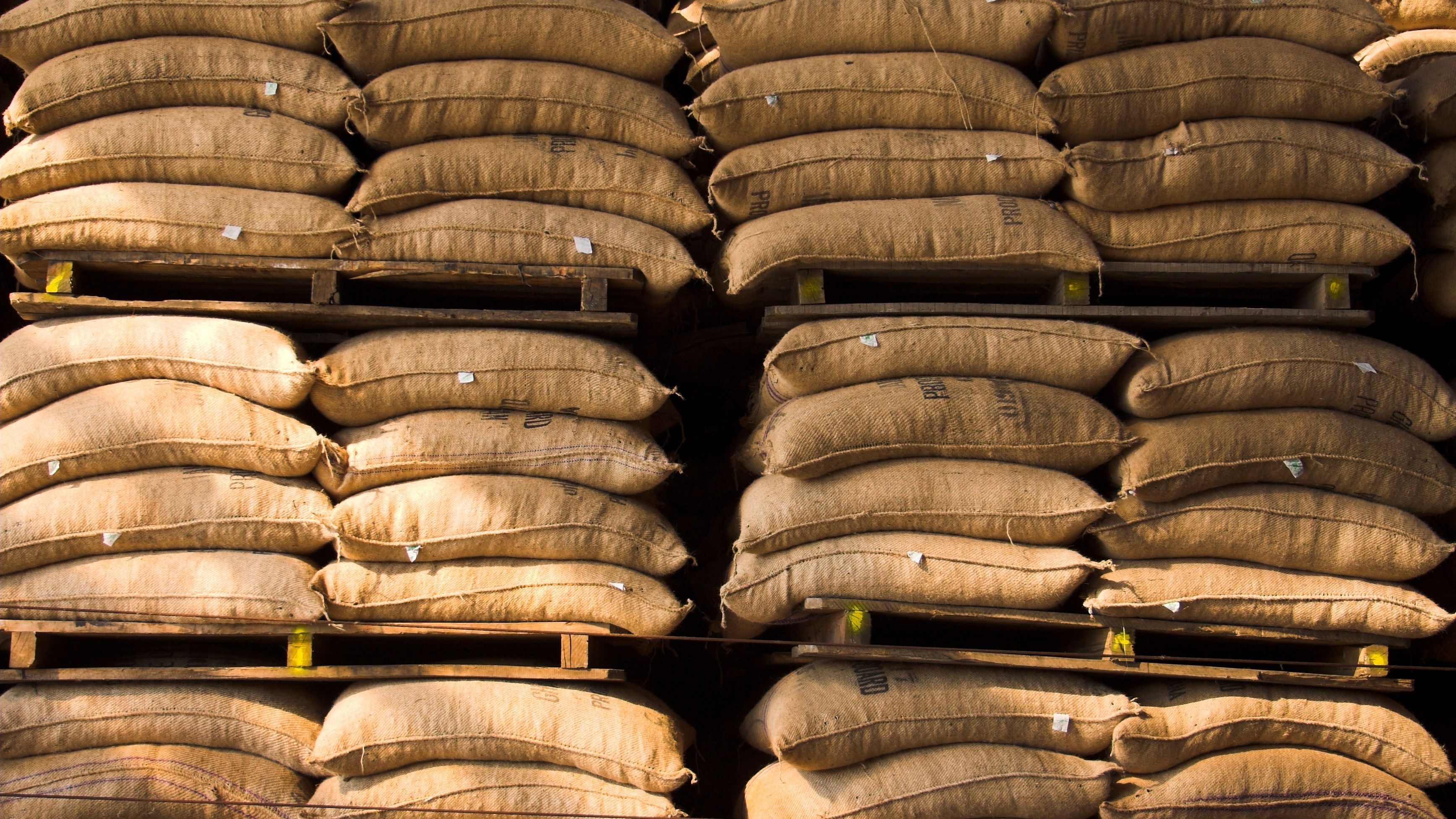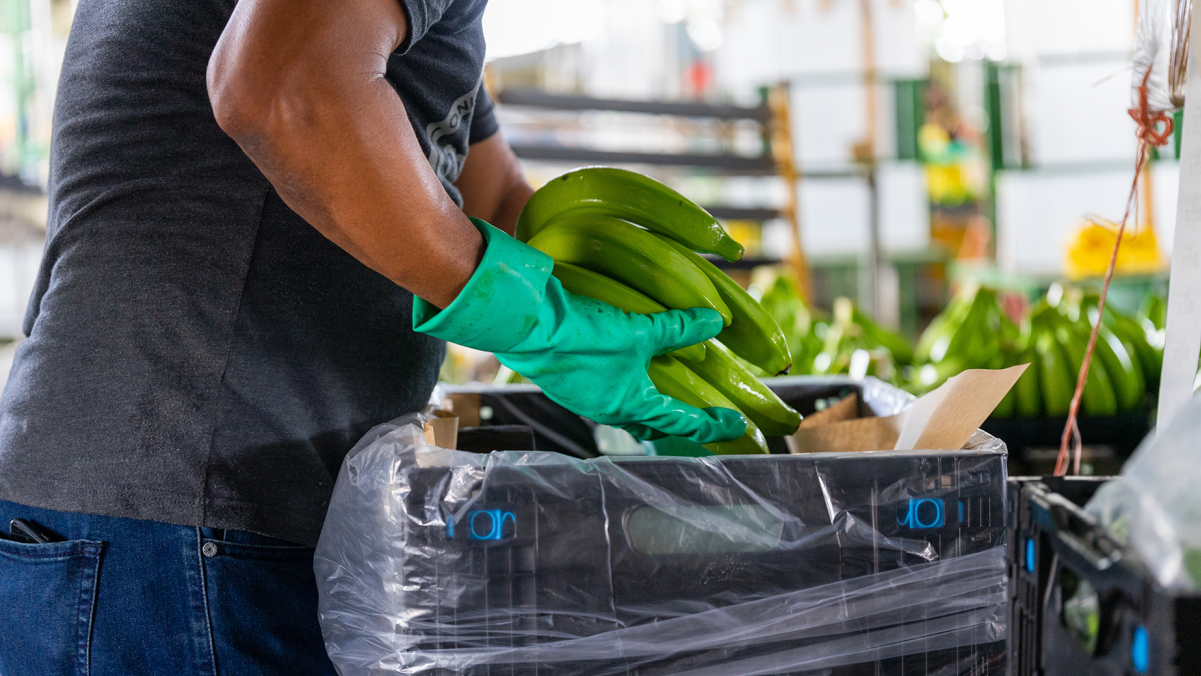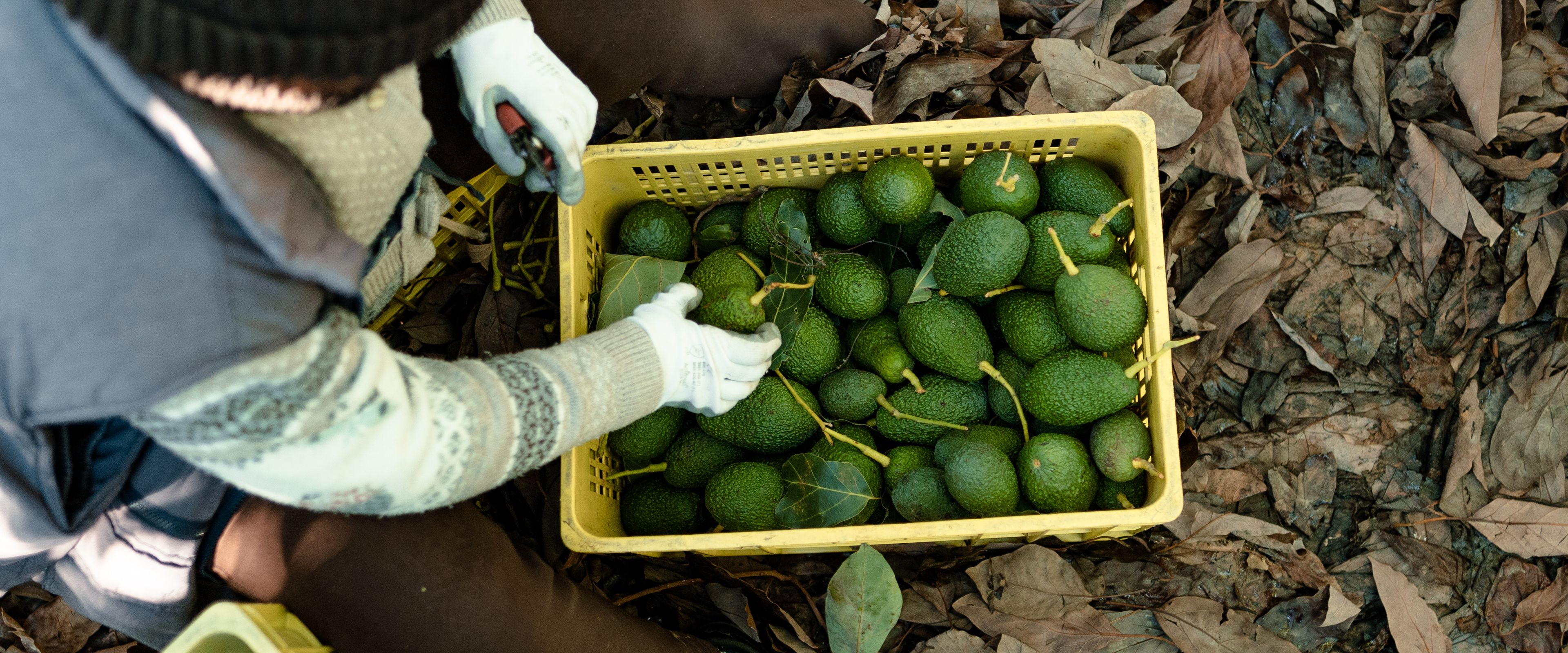

Peru is one of the largest producers of avocado in the world and - considering the high demand for this fruit - an important sourcing country for our business. In 2020, we conducted a Human Rights Impact Assessment (HRIA) that analysed the different perspectives of people affected by activities within the ALDI SOUTH Group’s Peruvian avocado supply chain.
To act responsibly and sustainably, we need to understand the impact our company activities and business relationships have on workers and communities. Human Rights Impact Assessments (HRIAs) help us to identify potential and actual issues and risks in our supply chains. These studies follow a stringent methodological approach, with extensive background research and engage with several rightsholders. The ALDI SOUTH Group identified tropical fruit, including avocado, as a high-priority commodity group - due to its profile, the volume bought and the high risk of adverse impacts on human rights.
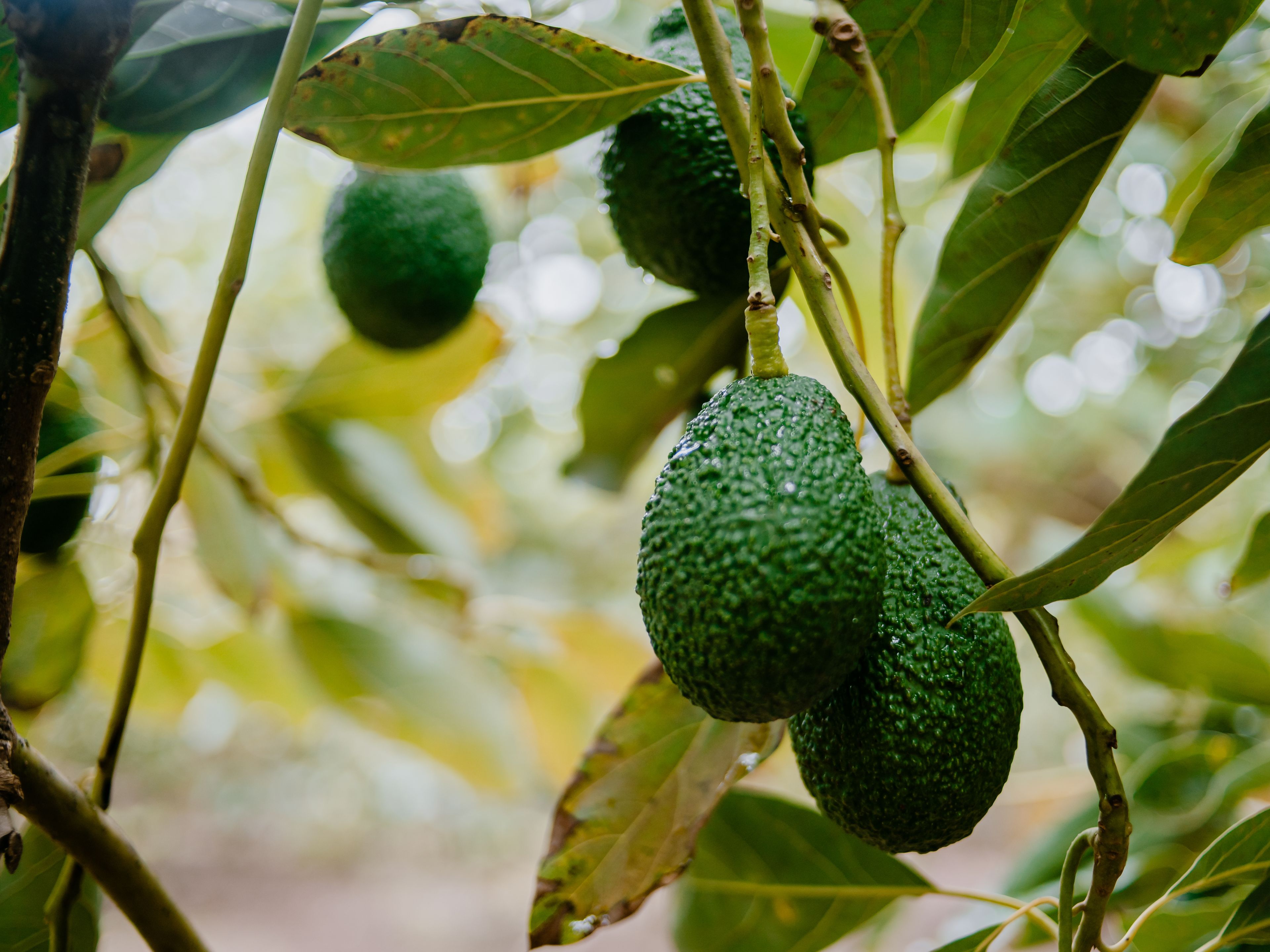
Key challenges when sourcing tropical fruits
Tropical fruits like bananas, pineapple or avocados are often grown in developing countries, including by smallholder farmers. Human rights violations such as low and irregular wages and incomes are key challenges. Fresh fruit production can be water-intensive and highly dependent on rainfall or fresh water. Besides droughts and water scarcity, deforestation has become a major environmental risk for the sector, especially in banana and avocado cultivation.
The ALDI SOUTH Group sets social and environmental standards for suppliers at a grower level. Additionally, we use independent certification schemes when buying tropical fruits to ensure compliance with our requirements.
Why Peru as a focus country for the HRIA?
The global demand for Acovocado is constantly growing, with the US and Europe as the largest import markets. Peru was selected as a focus country for this assessment due to its global production scale and importance within the ALDI’s avocado supply chain. Export agriculture is a key source of formal employment in the country, providing income for many workers and their families. Our analyses found that most human rights challenges are linked to poor labour rights and working conditions. Risks also exist for smallholders due to their vulnerable position in the export value chain.
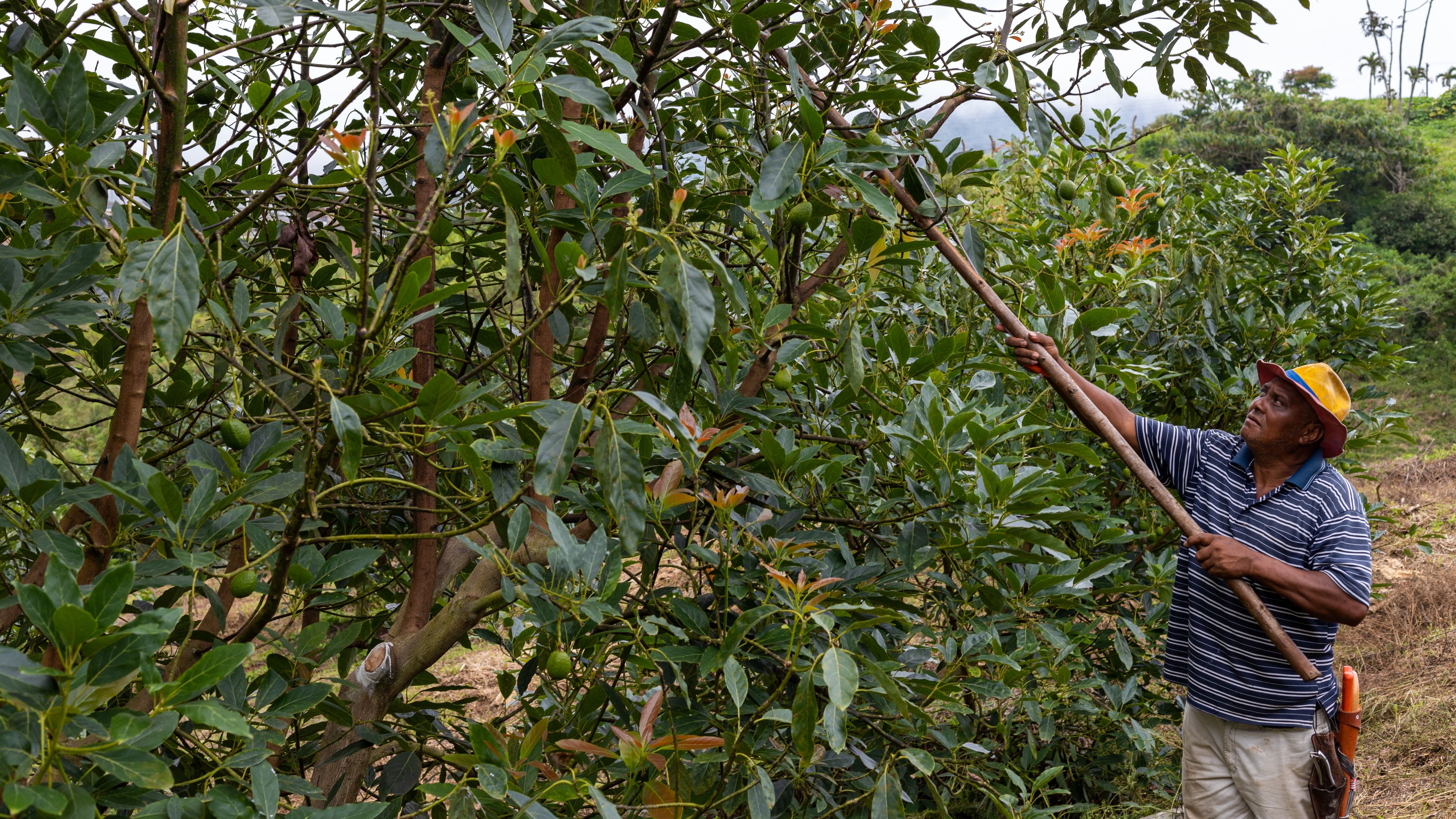
Key Finding for us as a retail company
Through this project, we gained in-depth knowledge of the avocado supply chain. We identified impacts potentially linked to ALDI’s business activities and where ALDI can initiate change. The HRIA has been crucial for shedding light on the supply chain. It also offered market and business perspectives on human rights in the Peruvian fresh fruit production sector. These findings help us to strengthen our ALDI standards and due diligence.
- The most salient human rights challenges are linked to labour rights and working conditions, freedom of association, non-discrimination, and workplace grievances.
- The fluctuating demand for labour throughout the year strongly relies on temporary and seasonal employment, leaving some workers with an irregular income and low wages.
- The high demand for water in avocado production leads to scarcity in most production regions, impacting the standard of living for local communities.
- Smallholders were identified as highly vulnerable due to their position in the export value chain with limited leverage to negotiate prices.
Deep dive: Methology and impact assessment
To conduct this study, a strict HRIA methodology has been followed. It included desktop analysis, remote stakeholder engagement, an impact assessment and developing recommendations.
The assessment considered different perspectives of people affected within ALDI’s avocado supply chain. The changing COVID-19 situation in 2021 limited the scope of feasible fieldwork visits. However, our visits included a range of large and smaller producers in distinct geographic locations. The process also engaged stakeholders beyond ALDI’s immediate supply chain, including trade unions, government, civil society organisations, and NGOs. Read the complete assessment for more detailed information.
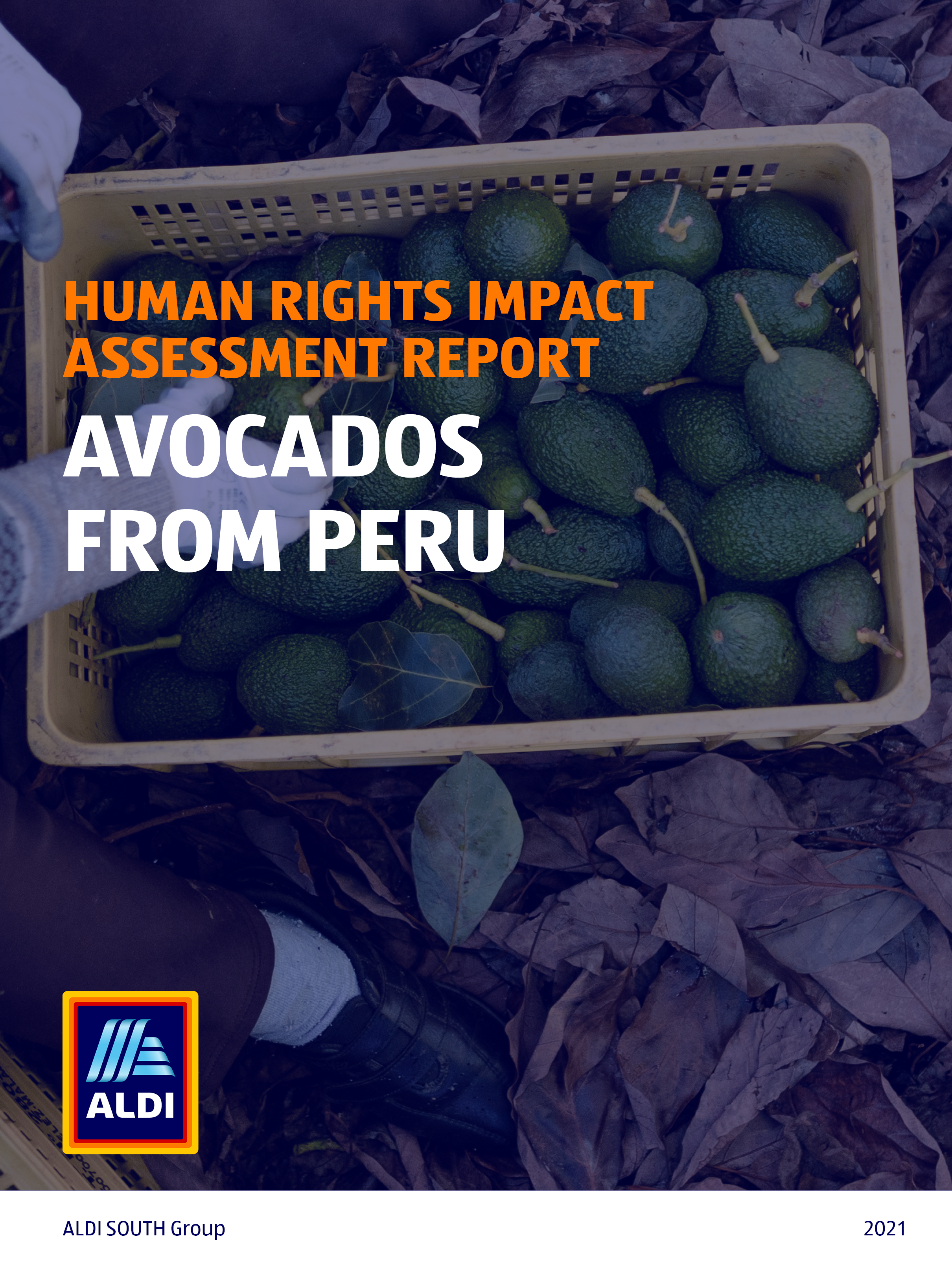
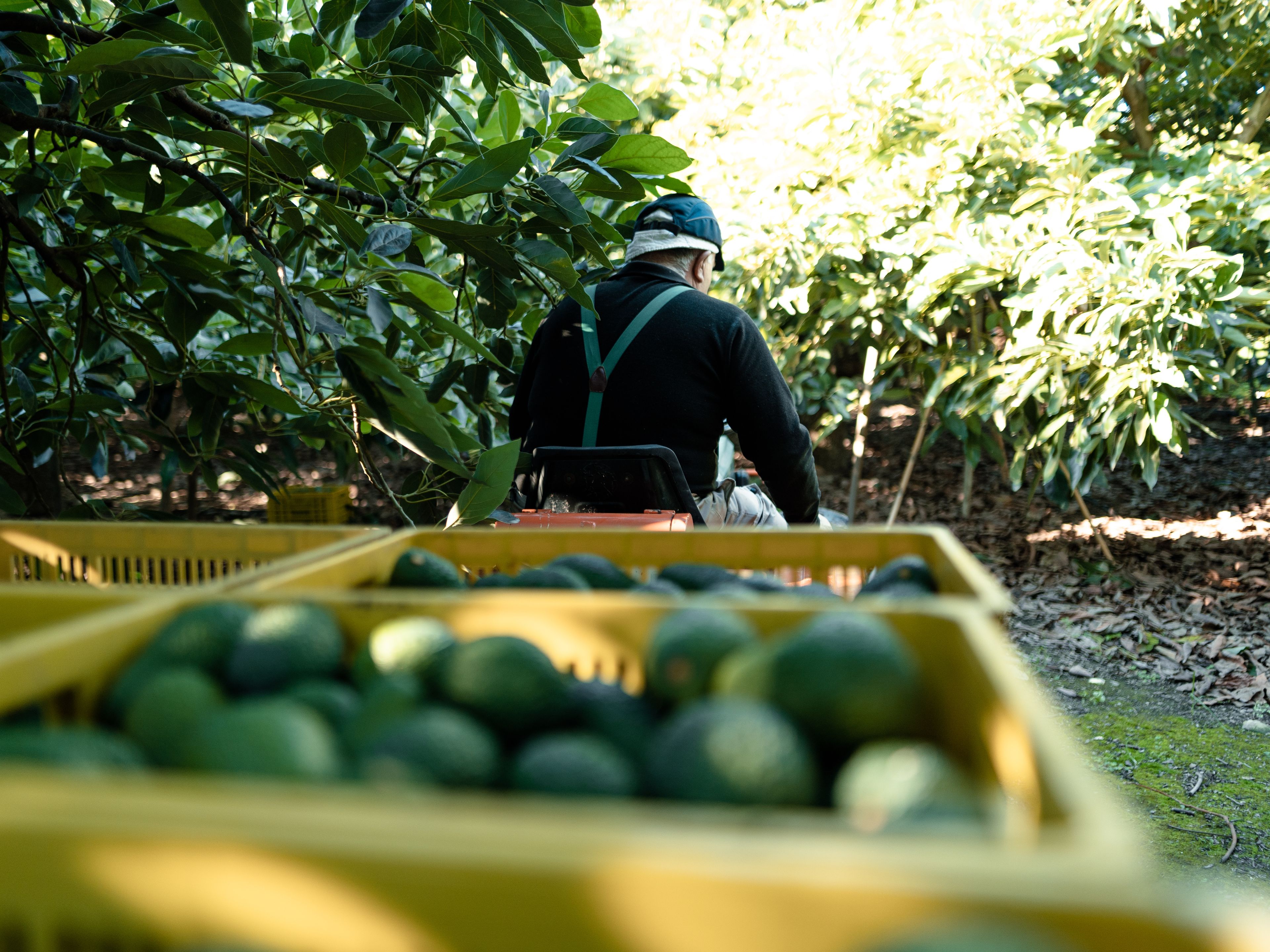
Root cases and ALDI linkage
Many impacts seem to have more than one root cause, including sectoral or contextual drivers. For instance, Avocado production has fluctuating demand for labour throughout the year and strongly relies on temporary and seasonal employment. As a result, workplace grievance mechanisms for harvest workers are less effective due to a lack of awareness of the procedures in place.
As a retailer, ALDI does not own or have investments in any Peruvian avocado production plants. Therefore, we do not directly cause or contribute to human rights impacts associated with the sector. However, there might be a linkage to certain impacts or root causes. Some objectives in which ALDI can make a positive difference are supporting the social dialogue in Peru and evaluating living income and living wage for workers.
Our actions to drive change
Based on the recommendations of this study, ALDI has developed an avocado supply chain-specific Human Rights Action Plan. It focuses on areas where we have potential leverage to address negative and enhance positive impacts for rightsholders.
Continuing and intensifying stakeholder engagement
The HRIA key findings and Action Plan were translated to Spanish. After reviewing the results collaboratively, the action plan was reviewed and refined with selected stakeholders.
As part of this, we successfully
- strengthened our dialogue with our suppliers and are now actively considering their sustainability performance and measures as part of our buying decisions
- conduct our own ALDI Sustainability Assessments at farm level to investigate and evaluate he environmental and human rights situation on farms supplying to ALDI
- supported initiatives to strengthen social dialogue in the fresh produce production in Peru
- published a policy for gender equality in supply chains, specifically on expectations regarding gender equality, non-discrimination, and gender-based violence and harassment
For more information, read the full HRIA Report on avocados from Peru and the updated Human Right Action Plan.
